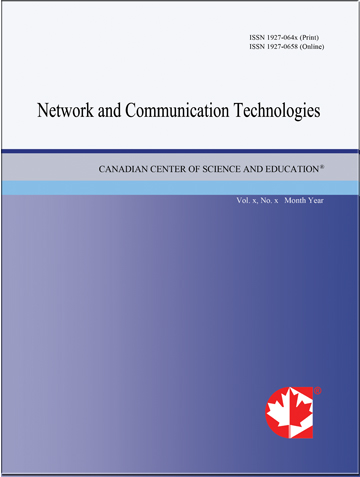The Performance and Future of QUIC Protocol in the Modern Internet
- Jianyi Wang
Abstract
Quick UDP Internet Connections (QUIC) protocol is a potential replacement for the TCP protocol to transport HTTP encrypted traffic. It is based on UDP and offers flexibility, speed, and low latency. The performance of QUIC is related to the everyday web browsing experience. QUIC is famous for its Forward Error Correction (Luyi, Jinyi, & Xiaohua, 2012) and congestion control (Hari, Hariharan, & Srinivasan, 1999) algorithm that improves user browsing delay by reducing the time spent on loss recovery (Jörg, Ernst, & Don, 1998). This paper will compare QUIC with other protocols such as HTTP/2 over TCP, WebSocket, and TCP fast open in terms of latency reduction and loss recovery to determine the role of each protocol in the modern internet. Furthermore, this paper will propose potential further improvements to the QUIC protocol by studying other protocols.
- Full Text:
 PDF
PDF
- DOI:10.5539/nct.v6n1p28
Journal Metrics
(The data was calculated based on Google Scholar Citations)
1. Google-based Impact Factor (2021): 0.35
2. h-index (December 2021): 11
3. i10-index (December 2021): 11
4. h5-index (December 2021): N/A
5. h5-median (December 2021): N/A
Index
Contact
- Bruce LeeEditorial Assistant
- nct@ccsenet.org
